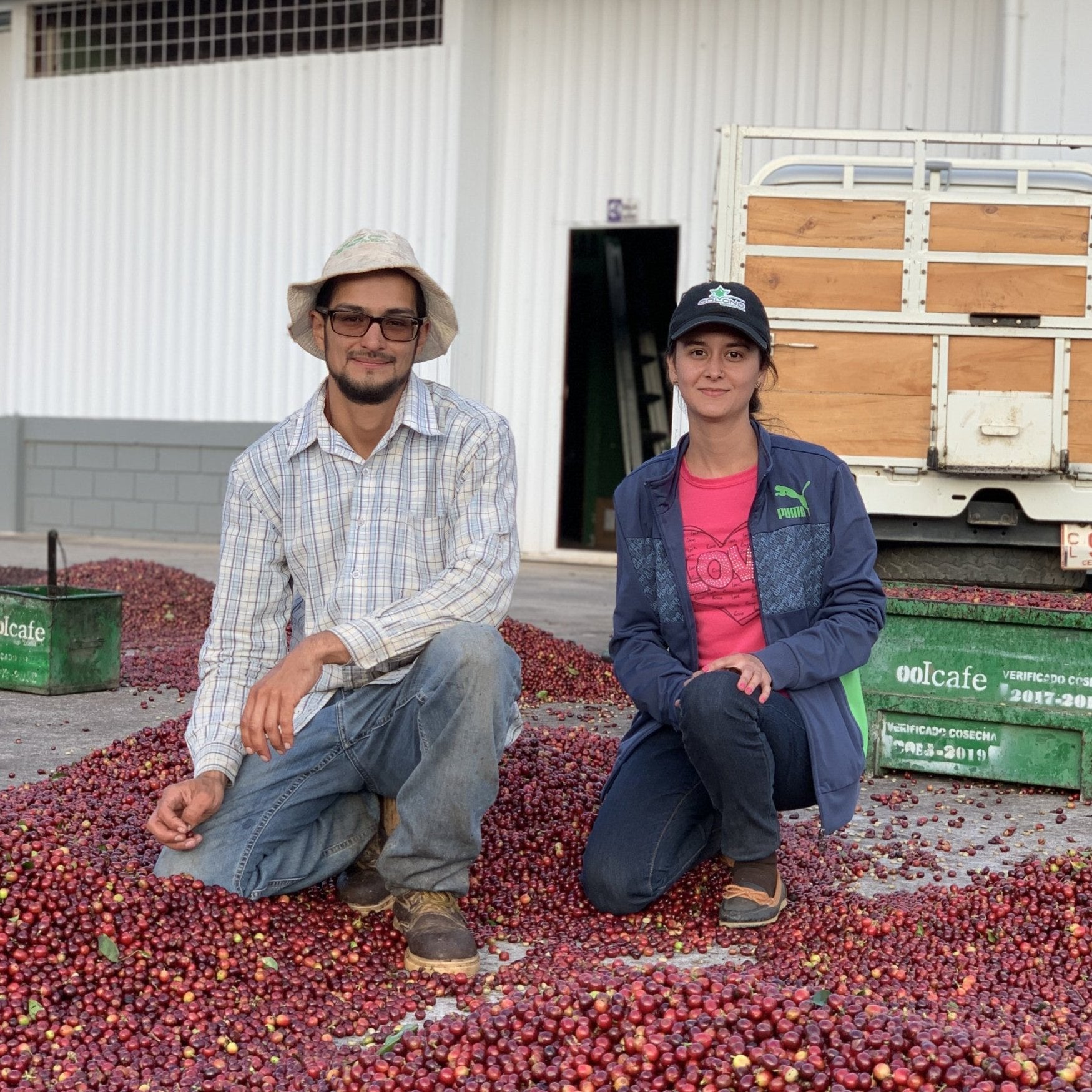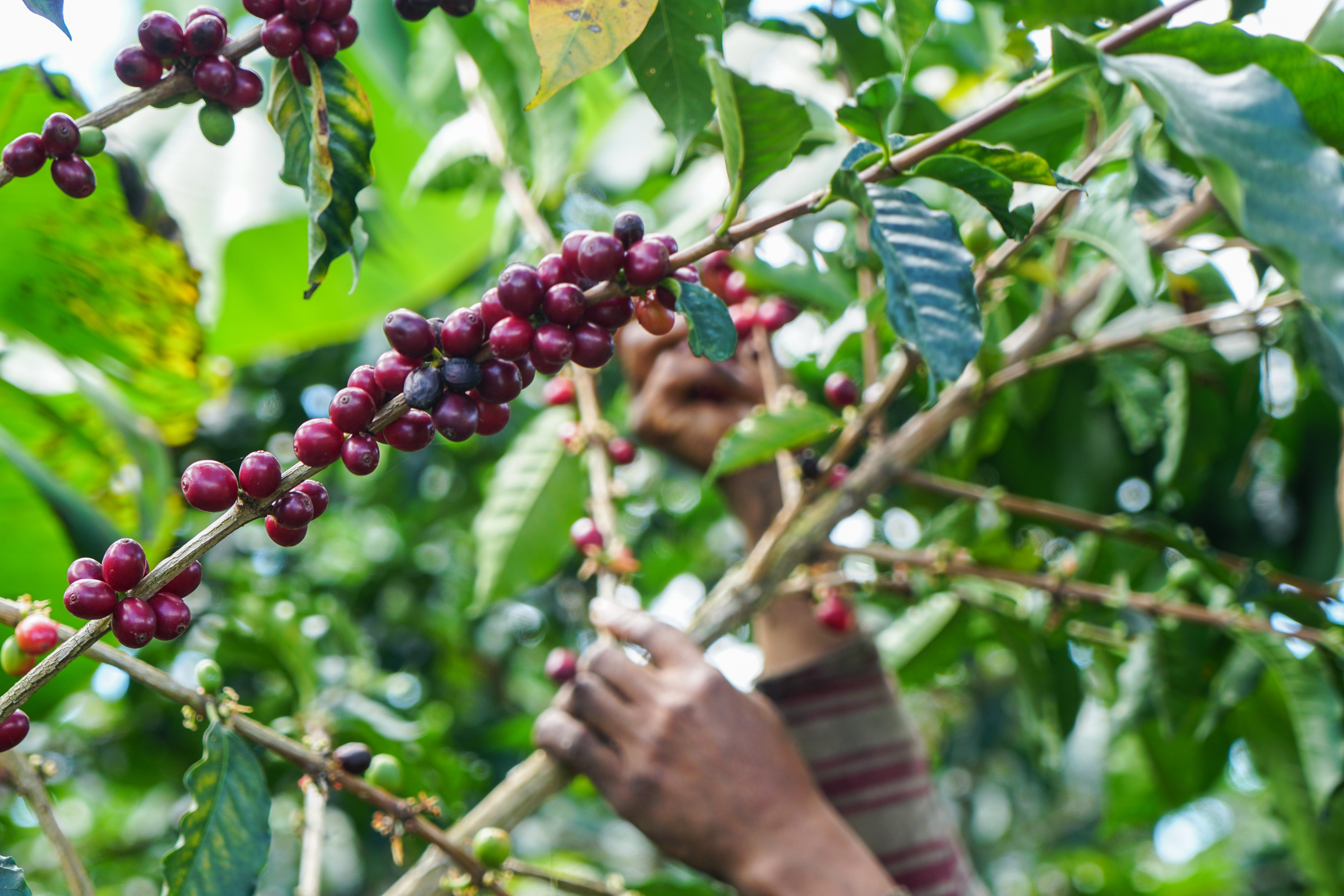
Costa Rica - Las Palomas
TASTING NOTES:
Cherry, Chocolate, Orange. The Honey Process adds body and depth to this coffee, imparting additional fruit flavours to the final cup which is well balanced and sweet with subtle fruit notes.

PRODUCER
Don Jorge Monge Garbanzo
REGION
Aserri, Tarrazu
HARVEST
December - March
ALTITUDE
1800 - 1900 MASL
VARIETY
Catuai, Caturra
PROCESS
Honey Processed and sun-dried
ABOUT
Daniel and Maria Monge Garcia grow coffee at Las Palomas and the neighbouring farm is run by their uncle - Carlos. Speciality coffee gives the family a route to financial stability; with careful processing techniques and meticulous farm management they can increase the quality and price of their coffees.
Like many farmers in the region the family partner with ASOPROAAA, a local co-operative that supports producers by assisting with the processing and export of their coffee. Costa Rica has become a world leader in traceability and sustainability in coffee and during our recent visit we saw the work of this amazing co-op first hand.
Making A Difference
Brewing Advice
Our Packaging
Both our 250g bags and KG bags are 100% plastic-free and compostable.
Manufactured with best-in-class sustainable materials the bags are paper with a Plantcell™ compostable laminate that acts as a freshness barrier.

Costa Rica Coffee Production

Costa Rica Coffee Production

Micro Mills and Boutique Lots

